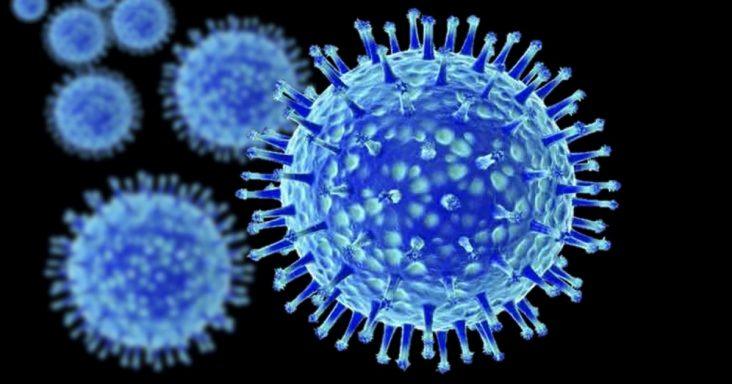Data confirms Delta region one of the hardest hit by COVID-19
by September 1, 2020 1:41 pm 900 views

Economic devastation has gripped through every geographic region in the U.S. and every economic sector in the wake of the COVID-19 pandemic. One region, often cited as the most impoverished in the country according to economic metrics, the Mississippi Delta Region, has been hit particularly hard, according to data collected by the Delta Grassroots Caucus.
“The Delta continues to suffer seriously from the pandemic and a strong recovery is still not here. A collection of data from across the region indicate the need for a strong economic stimulus from federal, state and private sector sources. An overly rosy depiction of the Delta’s economy is counterproductive because we need to admit we still have a severe problem in order to solve it,” said Lee Powell, Caucus director.
Four of the top counties in Arkansas in terms of high unemployment include Chicot (13.6%), Mississippi (12.6%), Phlllips (11.8%) and Crittenden (11.6%). Craighead County (7.7%) remained the lone bright spot in terms of economic metrics in the region.
Other key findings from the compilation include:
Mississippi, Arkansas, Alabama and Louisiana had the four highest rates of food insecurity based on a Feeding America survey. The Northwestern University Institute for Policy Research found the highest food insecurity levels were in Mississippi (31.6%) and Louisiana (30.1%), with Arkansas the fifth highest at 25.9%.
A survey of the University of Arkansas Department of Sociology and Criminology found that Arkansas and other Southern and mid-Southern states had elevated levels of food insecurity due to COVID-19. In the category of “reduced quality, desirability or variety of diet,” the four worst rates were all from “Greater Delta Region” states: Alabama (47.7%), Arkansas (47.4%), Tennessee (45.1%) and Kentucky (44%).
A University of Louisiana at Lafayette report found that job losses in Louisiana were virtually twice as high in the pandemic as compared with after Hurricane Katrina – by 11% in the first half of this year, as compared with a 6% drop after Katrina in 2005. Louisiana’s gross domestic product contraction of 6% was one of the five sharpest drops among all states.
An Illinois Municipal League survey found that 87% of municipalities expected a substantial revenue shortfall due to the pandemic. Many communities advised that they will need greater assistance from federal and state governments. The Southern Illinois Delta area chronically fares worse than the statewide economic figures for Illinois.
ALREADY VULNERABLE
The Delta economy was vulnerable due to many small businesses that were struggling even before the pandemic. Many have closed or have not come back yet, and many low-income people who did not have large savings to see them through a downturn are struggling financially, the data reflects.
The region’s diverse population with many African Americans and some other minorities has been hit harder by both higher virus infection rates and more economic losses, with minority women being especially hard hit because women suffered the largest job losses and as minorities they have higher virus infection rates; and the region’s economy had major manufacturing, agriculture and other sectors that have been hit disproportionately by the recession.
Harvey Joe Sanner, president of American Ag Movement of Arkansas in Des Arc, said “the situation is bleak.”
“Our job situation is worsening. as one of our large employers in Lonoke, Remmington Arms is laying off workers… I think most people feel that our situation, both health-wise and economically, will get worse before it gets better,” Sanner said.
Millie Atkins, Delta Caucus senior adviser and veteran Delta regional advocate based in Monroe, La., said the organization will seek federal relief.
“This pandemic has shed a great light on the many economic, social and educational inequities in a number of areas where the Delta was vulnerable such as the large number of job losses, the many low-income jobs that made it difficult for people to accumulate savings that could see them through a downturn, the small business closures that have not come back yet,” she said.
Powell said the Delta Grassroots Caucus will advocate for a continuing strong stimulus package at the annual Delta conference on Oct. 13-14, 2020, which will largely be conducted by Zoom webinar due to the coronavirus. Delta Caucus partners across the region are calling for a strong economic stimulus and safety net package to jump-start the region’s economy. Suggestions for a policy package include continuing larger unemployment benefits and strong federal and state economic stimulus packages to deal with unprecedented job losses.
The Caucus will seek a 15% increase in SNAP and other nutrition benefit programs during the pandemic – although SNAP is primarily an anti-hunger program, it also has an economic stimulus impact, with every $1 spent on SNAP generating $1.70 in economic benefits. The Caucus will ask for a major infrastructure expansion program to create jobs, repair deteriorating infrastructure, and stimulate the economy.
The Caucus will seek funding for Job creation and retention programs through tax incentives for investing in economically distressed areas. It will ask for maintaining education and workforce development programs during the pandemic, which will require a major broadband access expansion initiative through programs such as USDA’s Rural Re-Connect high-speed broadband program and state programs like Arkansas’ Rural Connect (ARC).
